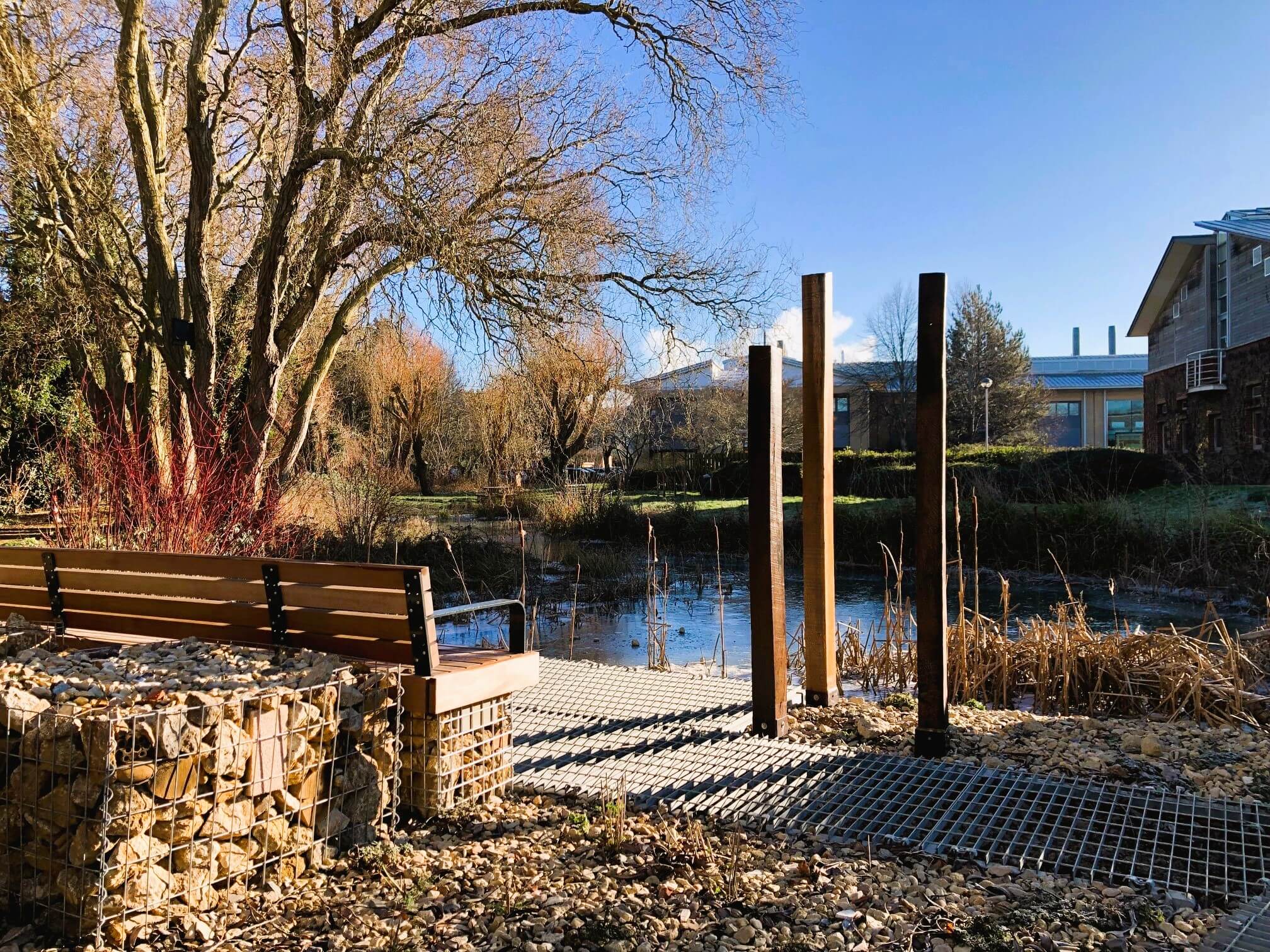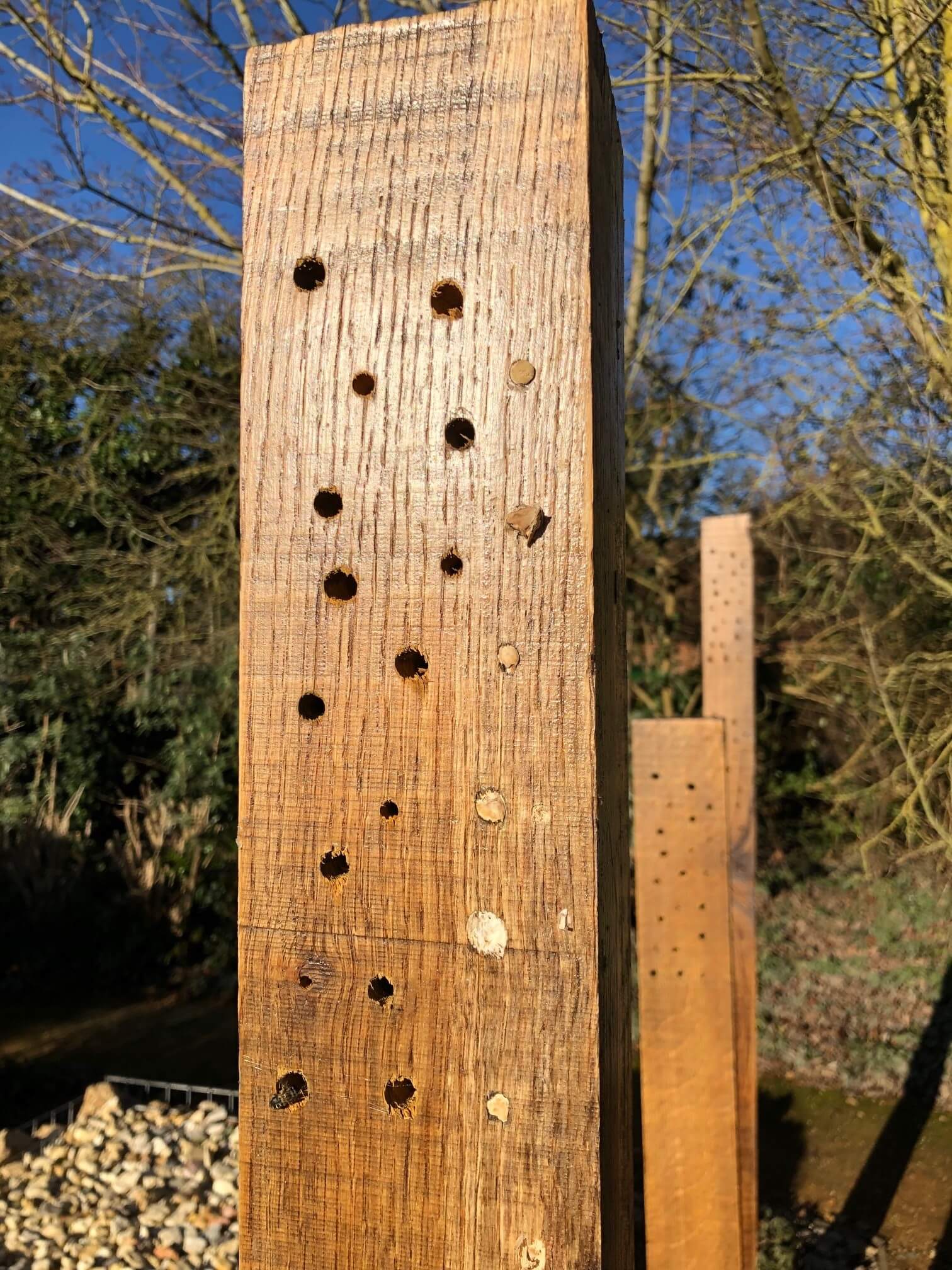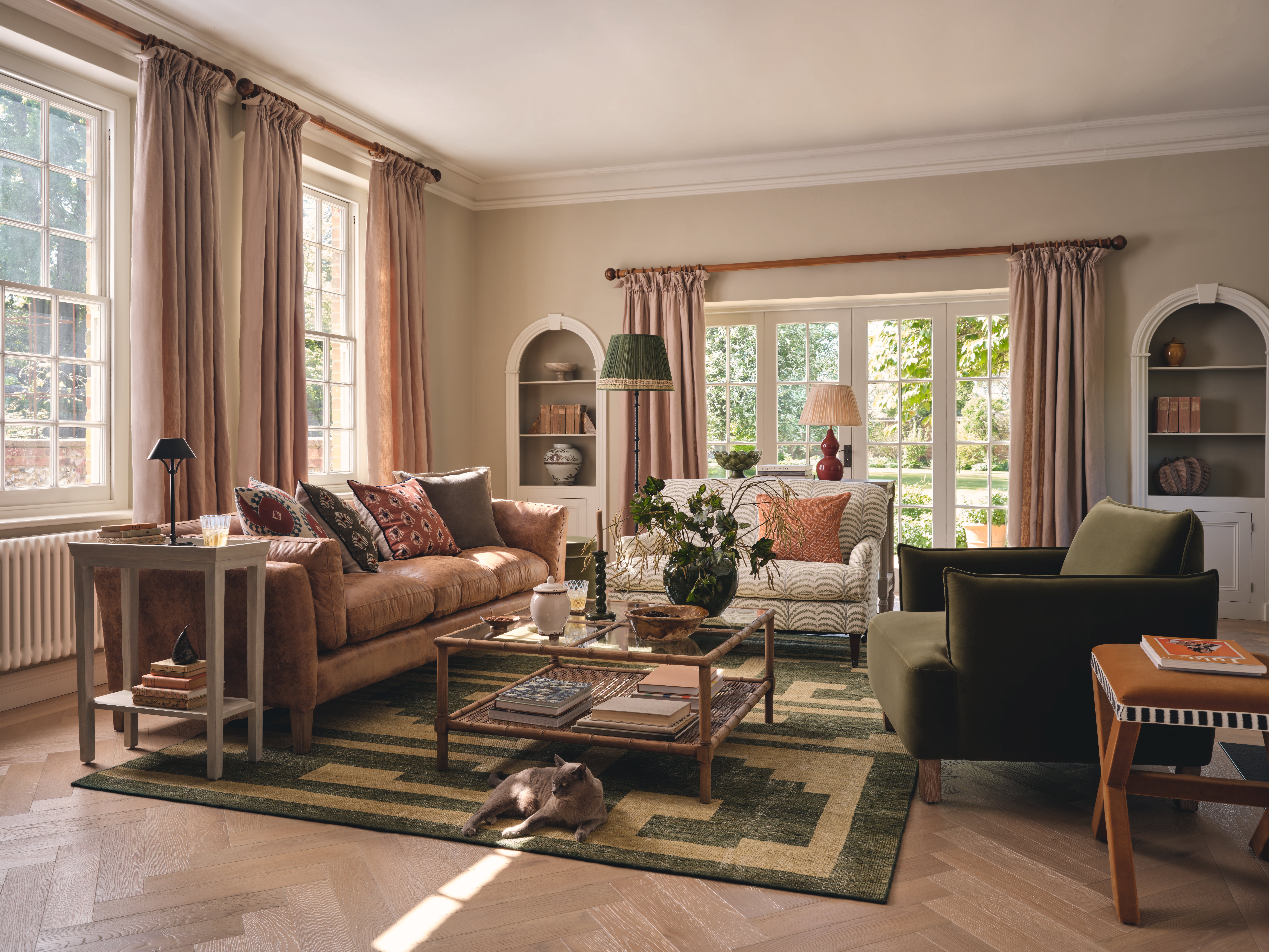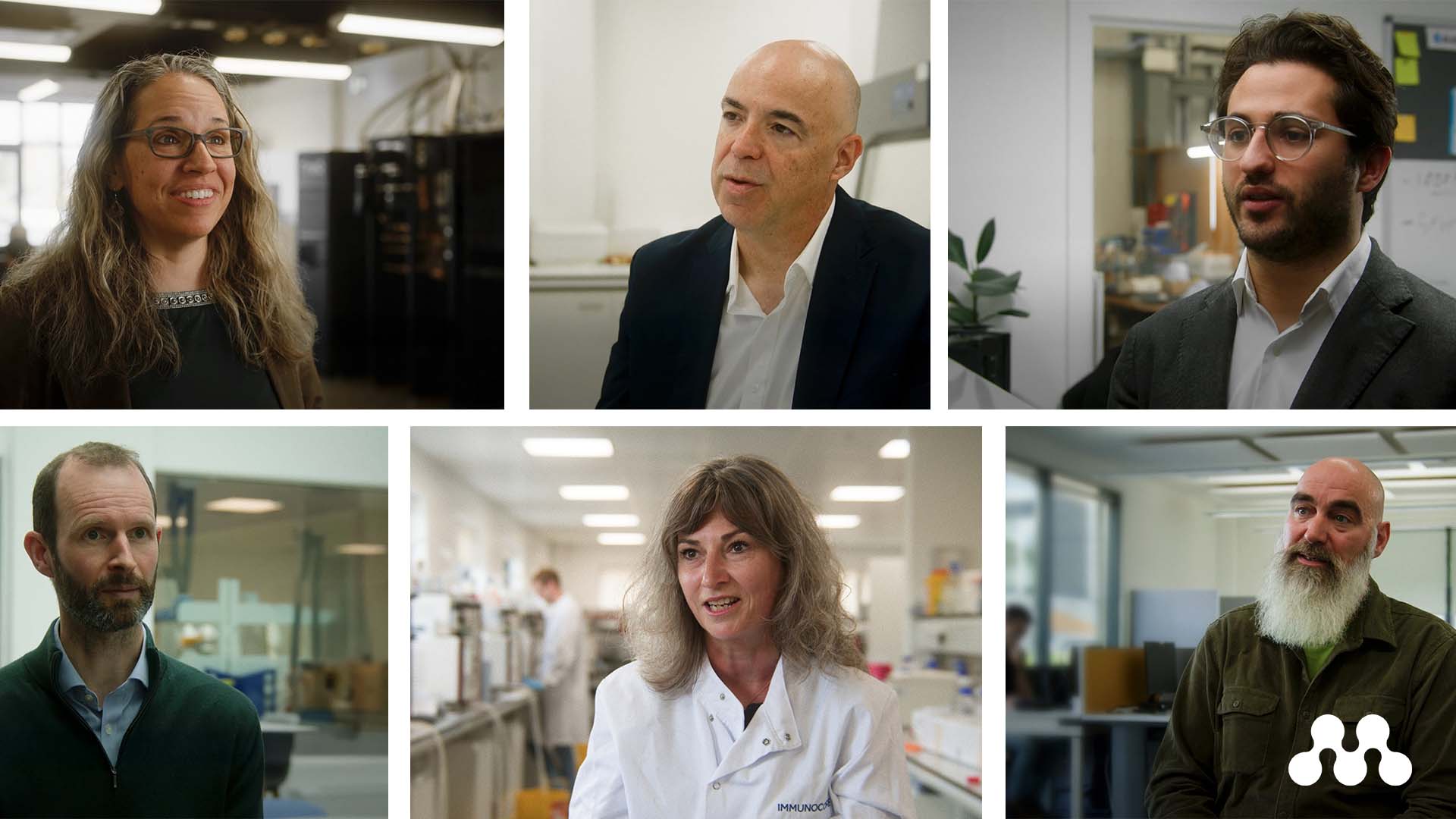Recycled garden
Published on 19 March 2024

Inspired and guided by John Little of the Grass Roof Co, and working alongside the Milton Park team, ASA Landscape Architects set out to create a recycled garden, utilising a pioneering approach to landscape design: a first of its kind for Milton Park. From the beginning, the new garden carefully considered the impact of its materials, baking-in biodiversity and climate-resilience from the outset, by utilising recycled construction waste in its design.
Biodiversity and Native Planting
Located in a quiet area of Milton Park, the garden had previously been block planted with non-native shrubs, adjacent to a small ‘lagoon’ and streamway. The low nutrient level of the crushed and free-draining substrates enabled ASA Landscape Architects (who are based on Milton Park) to plant diverse native plants and their cultivars usually found on chalk downland. The low nutrient levels prevent fast growing species from dominating and therefore support a higher plant diversity. The planting was carried out in November 2023, as a mixture of seeding and plug planting (9cm pots).
In addition, ASA integrated non-native low nutrient loving plants and native marginal planting to the lagoon, that will extend the season for both pollinators and public alike.
Within a few weeks of implementation, the team were encouraged to see investigation and up-take by solitary bees of the upright wooden posts that had been installed as well as fungi (a genus not well represented within commercial landscapes) taking hold within the drilled holes.
Sustainable Sourcing
Through reusing onsite construction waste of crushed concrete and bricks as a planting substrate, the team avoided the need for imported topsoil, instead re-creating the low nutrient substrates that usually support the most diverse wildflower communities. Habitat variety was introduced through interweaving sand and soil piles, drilled reclaimed wooden posts and logs as well as re-used bricks, to create an aesthetically pleasing site that provides unique niches for wildlife. New materials brought onto site were selected to be long-lasting industrial materials, such as galvanised steel gabion baskets and walkways. These helped to reduce future maintenance and contributed to habitat variety, whilst allowing occupiers to use and enjoy the space created.
Designing for Climate Resilience
The planting mixture was designed to be drought tolerant, having selected species that thrive in free draining chalkland environment, and its performance over the summer months will be reviewed over time.
Peter King, Estate Manager at Milton Park said:
This installation is a great example of sustainable landscape design and how recycled materials can be used to integrate structure within a landscape to benefit biodiversity. Not only is this a sustainable project in its delivery and installation but also the on-going maintenance and carbon inputs are greatly reduced due to the substrates and materials used. We have already gained a positive response from occupiers of the park and given the success of the scheme we shall be looking to replicate the design principles across Milton Park.”
Milton Park and ASA hopes this experimental recycled garden within a commercial landscape setting will help them understand what is possible in delivering low-cost landscapes that seek to integrate low nutrient, highly variable environments that deliver scalable sustainable, biodiverse and climate resilient landscapes.




